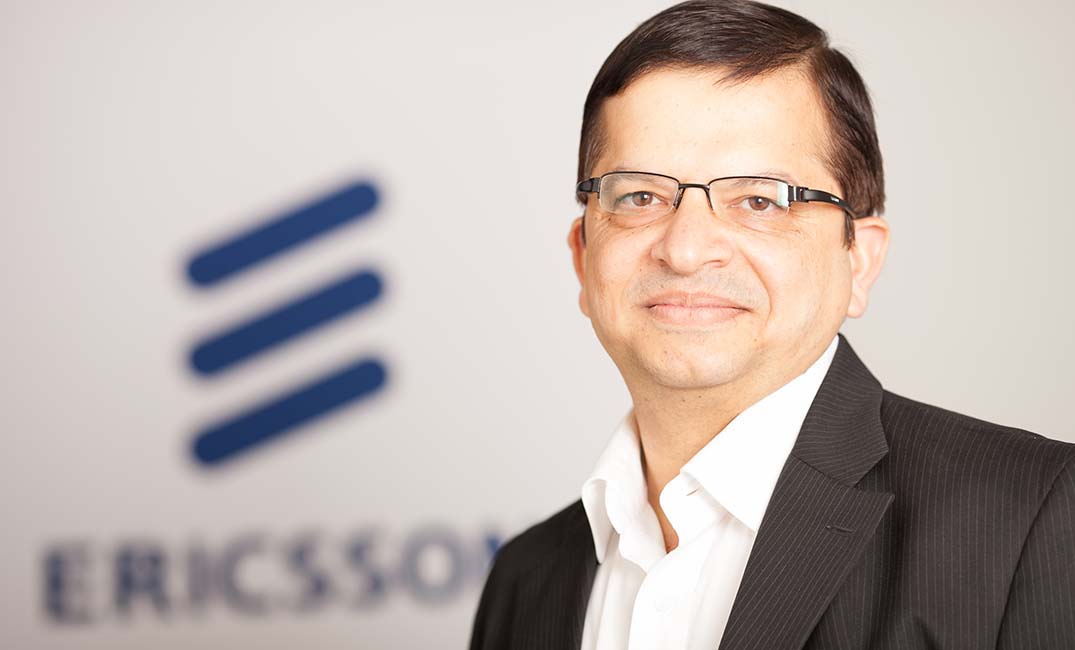When 5G first arrived, it was advertised as a revolution in connectivity, promising blazing speeds and instant data access.
But for most of us, the experience has been more evolutionary than revolutionary, writes Rakesh Lakhani, head of networks solutions for Ericsson Middle East and Africa.
At face value, videos load faster, and downloads complete in seconds, but the promised transformative impact has felt out of reach, especially for people who aren’t directly involved in tech or industry. Now, however, we’re on the brink of a more significant upgrade: 5G Advanced.
This new phase has the power to do more than just improve personal device speeds; it aims to make networks smarter, more efficient, and more responsive to real-world needs in ways that could impact everyone. In other words, we are progressing towards Programmable Networks.
With 5G Advanced, Ericsson is pushing beyond the basic improvements in speed and capacity to create a network that can handle the complexity of our connected world. We are targeting high-performing programmable networks with new 5G Advanced products. Our recent advancements are designed to meet the challenges that current 5G networks struggle with, from energy consumption to service reliability and Artificial Intelligence (AI) Automation.
While these upgrades might seem technical, their potential to shape everyday life is enormous. Real-world benefits, like more accessible healthcare, improved public safety, reduced environmental impact, and longer-lasting devices, could all become possible.
One of the most noticeable changes 5G Advanced will bring is more reliable network performance, especially during heavy use. Real-time AI-powered automation automatically monitors and manages the network, responding to demand changes and optimizing performance on the fly. This, along with radio access network (RAN) differentiated connectivity, which allows networks to manage multiple services at once while maintaining quality for each, will provide much smoother and more reliable connectivity for everyone during busy periods.
Where a normal 5G network may struggle with a stadium full of people posting and streaming, 5G Advanced is equipped to handle the massive uptick of bandwidth demand without compromise. That is where premium network performance and advanced performance features enable more coverage and capacity in the most traffic-loaded scenarios.
Another groundbreaking benefit of 5G Advanced is outdoor positioning. This allows providers and enterprises to introduce location-based services with or without GPS using 5G standalone architecture, which can fill in the gaps of GPS and provide reliable and accurate location services. For example, it can support continuing navigation in tunnels, where it would otherwise falter, enabling emergency services to quickly pinpoint people in distress, or allow courier companies to keep track of their packages and streamline logistics. It can make people’s lives not only easier but safer as well.
For sectors whose connectivity is paramount, Ericsson’s mission-critical services technology ensures they can continue to operate during extreme conditions. With 5G Advanced, critical services – such as emergency response systems, defense communications, and railway signaling – can remain fully operational in any environment. In practical terms, this means first responders will have uninterrupted communication during natural disasters or large-scale events, when demand for infrastructure is high. By supporting these essential services, 5G Advanced makes cities and communities safer and more resilient in times of crisis.
Finally, 5G Advanced products also increase energy efficiency for both the infrastructure and consumer devices by optimizing power use across the network while reducing costs and environmental impact, which is a win for everyone. On the consumer side, 5G Advanced requires less power-hungry devices. With the device battery performance, it allows service providers to enhance the battery performance of any 5G device, including smartphones, wearables and AR/VR glasses with intelligent network features that save battery power.
All together, these seven innovations we have developed highlight the broader purpose of 5G Advanced. This isn’t just a technology upgrade for industries; it’s a leap towards smarter, more resilient programmable networks that can support real-world needs in ways that benefit everyone. The true success of 5G Advanced won’t be measured by download speeds but by the way, it enhances the quality of everyday life, from better public services to a more sustainable environment.
As 5G Advanced rolls out, the conversation around 5G should shift from faster internet to resilient vital infrastructure. At Ericsson, we can lay the foundation for these improvements, but it’s up to industries to build upon it.

